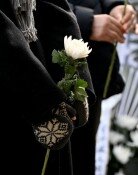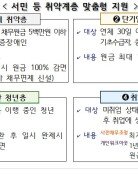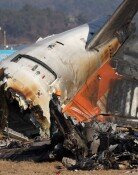Seoul, Busan, Ulsan, and Kyeongnam Will Decide
Seoul, Busan, Ulsan, and Kyeongnam Will Decide
Posted April. 11, 2004 20:59,
With only four days left until the 17th general election, the opposition Grand National Party (GNP) and the Uri Party are running neck and neck in the Seoul, Busan, Ulsan, and Kyeongnam areas. These areas have been pointed out as some of the elections most competitive regions, and one party will likely dominate them all.
The outcome of the general election is likely to be determined by which party wins in these areas.
According to analysis based on evaluations issued by each party and advice from poll experts requested by Dong-A Ilbo, it is difficult to predict which party will win in these areaswhere 89 seats (Seoul 48, and Busan, Ulsan, and Kyeongnnam 41) out of 243 in total will be determined.
While the Daegu and Kyeongbuk areas are shifting in favor of the GNP, the Chungcheong area is sticking to its support for the Uri Party.
Furthermore, the Democratic Labor Party is expected to grasp at least 10 seats, including two or three seats from the constituency, buoyed by a recent sharp increase of public support. The Millennium Democratic Party also shows signs of rapid recovery in the Gwangju and Jeonnam areas. It is expected to play a critical role as the campaigning season comes to a close.
Meanwhile, a poll conducted by the Korea Research Center via telephone and requested by Dong-A Ilbo that targeted 1,030 voters nationwide revealed that one out of four voters had changed their minds over which candidates or parties they supported over the past week.
In addition, 78.8 percent answered, I promise to vote, and two out of three (66.2 percent) have already decided whom they will vote for.
Regarding the one voter, two votes system newly adopted for this election, 78.2% answered they were familiar with it.
Those surveyed were selected according to a percentage of voters in each district with consideration for their genders and ages. The survey has a 95 percent confidence level and a sampling error of +/-3 percent.
Young-Chan Yoon yyc11@donga.com sunny60@donga.com






